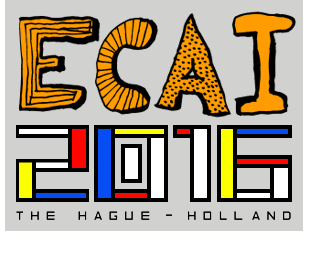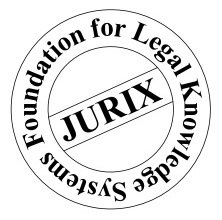August 30, 2016
The Hague, The Netherlands
Workshop at the 22nd European Conference on Artificial Intelligence (ECAI 2016)
Artificial intelligence is currently in the centre of attention of legal professionals. An abundance of startup companies explore the application of AI techniques in the domain of law, and there is even talk of artificially intelligent legal assistants disrupting the legal market space. Factors driving the increased attention for legal AI include:
- Technological breakthroughs in machine learning, natural language processing, ubiquitous computing, data science, and argumentation technology;
- The changing attitude towards technology in the legal domain;
- The much increased availability of legal data on the internet;
- The recent success of AI applications in the private and public domain;
- The success of technology supporting access to law, legal empowerment, and transparency;
- The increased need for norms embedded in technology (autonomous driving and warfare, big data analysis for crime fighting and counterterrorism).
The aim of this workshop is to investigate opportunities and challenges in AI applied to the law, with a particular focus on the relevance of the recent technological breakthroughs for AI & Law research and for legal practice. Questions addressed include the following:
- How can AI & Law research contribute to improving legal work in, for example, courts, law firms, public administration, police practice and businesses?
- How should AI & Law research change in light of the recent research breakthroughs and technological developments? For example, how can traditional research on legal knowledge bases, legal reasoning and legal argument be combined with data science, machine learning and natural language processing?
The law has been a longstanding application field for AI research. The biennial International conferences on AI & Law (ICAIL) started in 1987, the annual JURIX conferences on Legal Knowledge and Information Systems in 1988, and the journal Artificial Intelligence and Law was founded in 1992. Many ideas that are currently being commercially developed were first explored by AI & Law researchers, such as legal information retrieval, statistical analysis of legal data, automated contract drafting, automated processing of permit or welfare applications in public administration, and systems for regulatory compliance.
Some particular topics of relevance to the focus of the workshop are:
- Open data, linked data, big data;
- e-Discovery;
- Legal argument mining;
- Automated contract drafting;
- Computable contracts;
- Decision support for legal, forensic and police practice;
- Computational law.


 International Association for Artificial Intelligence and Law (IAAIL)
International Association for Artificial Intelligence and Law (IAAIL)
 Foundation for Legal Knowledge Based Systems (JURIX)
Foundation for Legal Knowledge Based Systems (JURIX)
 BeNeLux Vereniging voor Kunstmatige Intelligentie (BNVKI)
BeNeLux Vereniging voor Kunstmatige Intelligentie (BNVKI)
 Institute for Artificial Intelligence and Cognitive Engineering (ALICE)
Institute for Artificial Intelligence and Cognitive Engineering (ALICE)